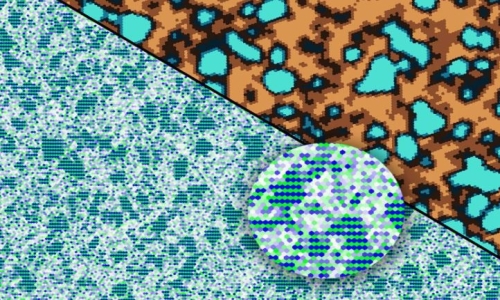


 3:26:48
3:26:48  2019-05-23
2019-05-23  1072
1072

Following their study in rats, scientists have broken new ground in memory research. The finding concerns how the brain retrieves long-term memory and should open new avenues for investigating and treating Alzheimer's disease and other causes of dementia.
Researchers at the University of Nevada, Las Vegas have discovered that two brain areas that work together to consolidate memories interact differently during the retrieval of remote memories.
The two brain areas are the hippocampus and the anterior cingulate cortex (ACC).
During consolidation, memory dependence transfers from the hippocampus to the ACC.
However, the recent study reveals that during remote memory recall, the ACC takes the lead and drives the hippocampus.
Graduate student Ryan A. Wirt and psychology professor James M. Hyman describe the 4 years of laboratory and analysis work that led to the findings in a Cell Reports paper.
"Our research," says Prof. Hyman, "opens up potential new avenues to explore why certain dementias and disorders lead to problems recalling long-term memories, which could help pave the way for future treatments that might be able to restore this ability to afflicted individuals."
Memory problems and cognitive impairment
Memory problems are a key symptom of mild cognitive impairment (MCI), a condition that can precede Alzheimer's disease and other types of dementia.
MCI affects around 15–20% of people in their mid-60s and older, according to Alzheimer's Association estimates.
Although the symptoms of MCI are not severe enough to disrupt everyday life, people who experience them will notice the changes, as will those who know them.
There are two types of MCI: amnestic, which affects memory; and nonamnestic, which affects thinking and judgment.
People with amnestic MCI begin to forget things that they would previously have remembered, such as recent events, conversations, and important appointments.
Prof. Hyman explains that losing the ability to remember long-term memories is a "hallmark symptom" of the transition from MCI to the more severe cognitive impairment that characterizes Alzheimer's disease.
From previous research on memory consolidation, he and Wirt already knew that with time, memory recall becomes less and less dependent on the brain region that includes the hippocampus.
They note that studies have also shown that the area that includes the ACC "is involved with contextual information processing and remote recall."
They explain, for example, how animal experiments have shown that neurons in the ACC "encode the where, when, what, how, and emotional aspects of contextual representations."
"Importantly," add the study authors, "these findings extend into memory retrieval, showing that as time passes the ACC's role in contextual processing increases."
What this previous work did not show, however, was the extent to which interactions between the ACC and the hippocampus "changed as memories became more remote."
Synchronization of brain waves
To explore this further, they put rats in different environments at "different retention intervals" and recorded electrical activity in their brains using implanted electrodes. They also examined the animals' brain tissue once the experiments were complete.
They found that when the ACC and the hippocampus work together during consolidation, there is a synchronization of brain waves between them.
However, as consolidation progresses, "the strength and prevalence" of the ACC waves grow, "leading to richer environmental context representations" in the hippocampus.
It appears that the hippocampus relies on the ACC to drive it during long-term memory recall after about 2 weeks.
"This is a new mechanism for memory retrieval and a significant advancement in our understanding of how we recall the past."
Reality Of Islam |
|

A tiny robo

By applying

Stanford, C
 9:3:43
9:3:43
 2018-11-05
2018-11-05
10 benefits of Marriage in Islam
 7:5:22
7:5:22
 2019-04-08
2019-04-08
benefits of reciting surat yunus, hud &
 9:45:7
9:45:7
 2018-12-24
2018-12-24
advantages & disadvantages of divorce
 11:35:12
11:35:12
 2018-06-10
2018-06-10
 6:0:51
6:0:51
 2018-10-16
2018-10-16
 5:57:34
5:57:34
 2023-03-18
2023-03-18
 9:50:37
9:50:37
 2023-02-28
2023-02-28
 10:43:56
10:43:56
 2022-06-22
2022-06-22
 10:35:40
10:35:40
 2022-05-26
2022-05-26
 2:42:26
2:42:26
 2023-02-02
2023-02-02
 9:39:36
9:39:36
 2022-12-28
2022-12-28
 8:25:12
8:25:12
 2022-03-09
2022-03-09
 5:41:46
5:41:46
 2023-03-18
2023-03-18
| LATEST |